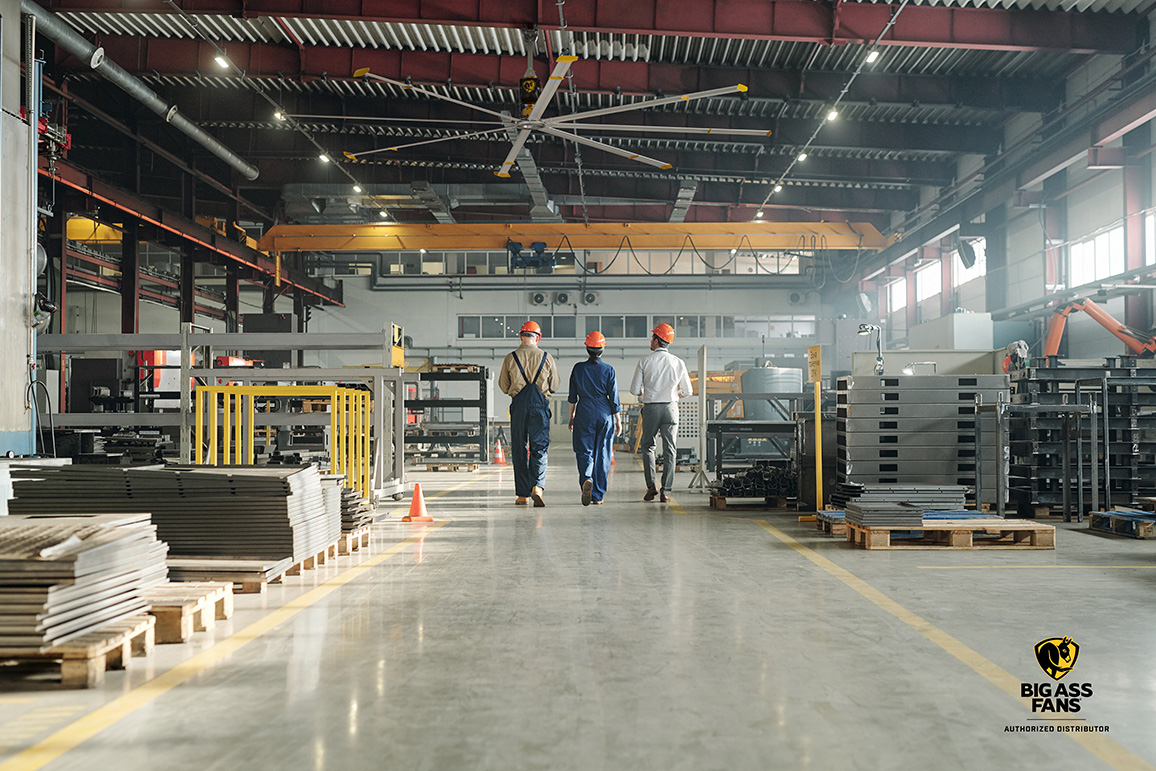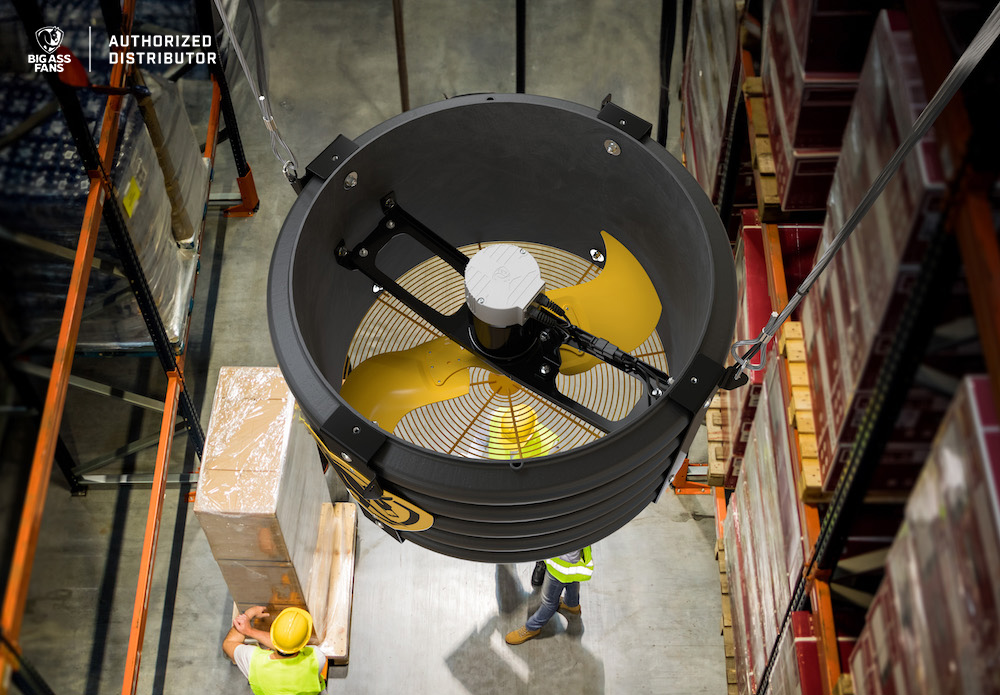HVLS (High Volume, Low Speed) fans can help reduce humidity in certain situations. While HVLS fans do not have a direct dehumidifying effect like traditional dehumidifiers, they can indirectly contribute to balanced humidity levels and sometimes humidity reduction through improved air circulation and ventilation.
Enhanced air circulation
HVLS fans generate a gentle, expansive airflow that blankets a wide area. This enhanced air circulation facilitates the even dispersion of moisture throughout the entire space. Stagnant, humid air tends to accumulate in the vicinity of walls, corners, and the ceiling. By continuously circulating air, HVLS fans effectively disrupt this stagnant air and promote a more uniform distribution of moisture.
Mixing of air layers
In enclosed areas, it is common for warm, moist air to rise towards the ceiling, while cooler, drier air remains closer to the ground. By operating HVLS fans at a slow and gentle pace, you can effectively push the warm air downwards and blend it with the cooler air. This ingenious process is called destratification, and it not only prevents condensation on surfaces but also creates a harmonious balance of humidity throughout the space.
Support for ventilation
HVLS fans can enhance the effectiveness of ventilation systems. They help facilitate the exchange of indoor and outdoor air, which is beneficial in reducing humidity levels. Proper ventilation allows for the removal of moisture-laden air and the introduction of drier outdoor air.
Improved occupant comfort
While HVLS fans do not remove humidity from the air directly, they can make occupants feel more comfortable in humid environments. The moving air creates a cooling effect on the skin through evaporation, which can alleviate the perception of high humidity.
Better crops, reduce botrytis
We have trialled using commercial ceiling fans in greenhouses in conjunction with automated vents to optimise airflow coverage across plants. The objective was to decrease botrytis and improve efficiency of heating during the winter. The results have been astounding, showing higher crop returns with better quality crops, significantly reduced cases of botrytis, and faster growth rates.
It's important to note that the effectiveness of HVLS fans in reducing humidity depends on the specific conditions and the humidity levels in the space. In extremely humid environments, HVLS fans alone may not be sufficient to maintain optimal humidity levels. In such cases, using HVLS fans in conjunction with dehumidifiers or heaters may be necessary to achieve the desired indoor climate.
Sign up to our newsletter




